
CYTOMETRY PART B-CLINICAL CYTOMETRY
Scope & Guideline
Exploring the forefront of cytometric applications in healthcare.
Introduction
Aims and Scopes
- Clinical Flow Cytometry Applications:
The journal primarily addresses the use of flow cytometry in clinical settings, including its application in diagnosing hematologic malignancies, monitoring disease progression, and assessing minimal residual disease. - Method Development and Validation:
A significant focus is on the development and validation of flow cytometric assays, including multi-parameter techniques and the standardization of protocols to ensure reliability and accuracy in clinical diagnostics. - Emerging Technologies and Innovations:
The journal explores innovative approaches in flow cytometry, including the integration of artificial intelligence, machine learning, and novel biomarker identification to improve diagnostic capabilities. - Immunophenotyping:
A core area of research is immunophenotyping, which involves the characterization of cell populations based on surface markers, crucial for the diagnosis and classification of various hematological disorders. - Quality Assurance and Guidelines:
The journal also emphasizes quality assurance practices and guidelines for flow cytometry, providing recommendations to enhance the reliability of results across laboratories.
Trending and Emerging
- Integration of Artificial Intelligence:
There is a growing trend towards utilizing artificial intelligence and machine learning to enhance data analysis and interpretation in flow cytometry, improving diagnostic efficiency and accuracy. - Minimal Residual Disease Assessment:
The focus on minimal residual disease (MRD) assessment has increased significantly, reflecting its critical role in monitoring treatment efficacy and disease recurrence in hematologic malignancies. - Multi-Parameter Flow Cytometry:
An increase in research dedicated to multi-parameter flow cytometry is evident, allowing for more detailed profiling of cell populations and better diagnostic capabilities. - Quality Control and Standardization:
Emerging themes include the development of rigorous quality control measures and standardization protocols, ensuring consistency and reliability in flow cytometric analyses across different laboratory settings. - Novel Biomarkers and Therapeutic Monitoring:
There is a trend towards the identification and validation of new biomarkers for therapeutic monitoring, particularly in the context of targeted therapies and immunotherapy, enhancing patient management strategies.
Declining or Waning
- Traditional Cytometry Techniques:
There is a noticeable decrease in the publication of studies focusing solely on traditional flow cytometry techniques, as newer, more advanced methodologies gain traction. - Single Parameter Analysis:
Research that emphasizes single parameter analysis is waning, with a shift towards multi-parameter approaches that provide a more comprehensive understanding of cell populations. - Basic Cytometry Protocols:
The journal has seen a decline in basic protocol papers, as the focus has shifted towards more complex and integrated methodologies that incorporate novel technologies and advanced analytics. - Case Reports with Limited Implications:
While case reports remain valuable, there has been a reduction in those that do not contribute significantly to broader clinical practices or advancements in flow cytometry methodologies.
Similar Journals
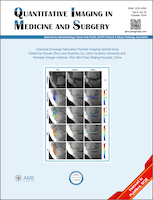
Quantitative Imaging in Medicine and Surgery
Advancing Imaging Science for Better Patient OutcomesQuantitative Imaging in Medicine and Surgery is an esteemed journal dedicated to advancing the field of medical imaging through rigorous research and innovative methodologies. Published by AME PUBLISHING COMPANY in China, this journal has established itself with an impressive Q2 quartile ranking in the field of Radiology, Nuclear Medicine, and Imaging, reflecting its dedication to high-quality research. With a comprehensive focus on quantitative imaging techniques, the journal covers a wide range of topics including image analysis, imaging biomarkers, and the integration of imaging in clinical practice, promoting collaboration between imaging specialists and clinicians. As an open access journal, Quantitative Imaging in Medicine and Surgery ensures that its articles are freely accessible, facilitating the dissemination of knowledge to a broader audience. With a commitment to fostering innovation in imaging science, this journal serves as an invaluable resource for researchers, professionals, and students alike, ultimately aiming to improve patient outcomes through advanced imaging strategies and technologies.
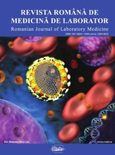
Revista Romana de Medicina de Laborator
Advancing the Frontiers of Laboratory MedicineRevista Romana de Medicina de Laborator is a prominent open-access journal published by SCIENDO, dedicated to the field of medical laboratory technology and biochemistry. Since its inception, this journal has been a vital platform for disseminating research findings and advancements in laboratory medicine. With an ISSN of 1841-6624 and E-ISSN 2284-5623, it has served the academic community since 2008 and has embraced an open-access model since 2013, ensuring that valuable research is accessible to all. While it features niche rankings in Scopus for areas such as Medical Laboratory Technology and Clinical Biochemistry, it consistently strives to engage researchers, professionals, and students. Its rich collection of articles highlights innovative techniques and methodologies, supporting the ongoing development of laboratory practices. Although its coverage in Scopus has been discontinued, the journal continues to publish high-quality studies that contribute significantly to the field, fostering knowledge exchange essential for advancing medical science.

MICROBIAL ECOLOGY
Unveiling the secrets of microbial ecosystems.MICROBIAL ECOLOGY, published by Springer, is a premier journal dedicated to advancing the field of microbial ecology, illuminating the intricate relationships between microorganisms and their environments. Established in 1974, the journal reflects a strong historical commitment to disseminating high-quality research, with its current scope encompassing groundbreaking studies that explore microbial dynamics in various ecosystems. In the 2023 rankings, it has secured a prestigious position in Q1 across multiple categories, including Ecology, Evolution, Behavior and Systematics, and Soil Science, indicating its influential contribution to scientific literature. While it does not offer Open Access, the journal remains highly accessible to researchers and professionals via institutional subscriptions. With an impressive Scopus ranking across significant ecological categories, it serves as an essential resource for academics looking to deepen their understanding of microbial interactions and ecological processes, thereby facilitating innovative research and practical applications in environmental science.

JOURNAL OF CLINICAL PATHOLOGY
Connecting Evidence to Effective TreatmentJOURNAL OF CLINICAL PATHOLOGY, published by BMJ PUBLISHING GROUP, stands at the forefront of advancements in the field of clinical pathology, offering a platform for groundbreaking research and insights from 1948 to the present. With an impressive impact factor and categorized as Q1 in both Medicine (miscellaneous) and Pathology and Forensic Medicine for 2023, the journal holds a distinguished position in the academic community, ranking 22nd out of 208 journals in its category on Scopus and representing the 89th percentile. While the journal does not currently offer open access, it remains a vital resource for researchers, healthcare professionals, and students seeking to stay current with innovative methodologies, clinical techniques, and diagnostic advancements. Located in London, United Kingdom, the journal aims to bridge the gap between laboratory findings and clinical practice, emphasizing the importance of evidence-based pathology in improving patient care and treatment outcomes. Engage with the JOURNAL OF CLINICAL PATHOLOGY to enhance your understanding and contribute to the evolving landscape of clinical pathology research.
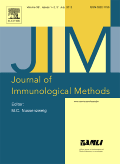
JOURNAL OF IMMUNOLOGICAL METHODS
Transforming Immunology with Methodological ExcellenceJOURNAL OF IMMUNOLOGICAL METHODS, published by Elsevier, is a prominent academic journal dedicated to advancing the field of immunology through innovative methodological research. With an ISSN of 0022-1759 and E-ISSN 1872-7905, this quarterly journal has maintained a steady publication rhythm since its inception in 1971 and looks forward to continued contributions until 2024. Positioned in the Q3 quartile for both Immunology and Allergy as well as Immunology, the journal ranks #150 out of 233 in Immunology and Allergy and #164 out of 236 in Immunology and Microbiology according to Scopus metrics, indicating active engagement within its field despite its developing status. The journal aims to provide a comprehensive platform for researchers and professionals to disseminate high-quality findings, collaborate on foundational methods, and tackle the pressing challenges within immunological research, fostering a deeper understanding of immune responses and promoting advancements in allergy treatments. While it operates under a subscription model, the scholarly contributions offered within these pages are invaluable for those aiming to stay at the forefront of immunological methodologies.

Practical Laboratory Medicine
Empowering Professionals with Open Access InsightsPractical Laboratory Medicine is a distinguished peer-reviewed journal published by Elsevier, focusing on the essential advances in the fields of clinical biochemistry and radiological technology. Begun in 2015, this Open Access journal fosters an environment of scholarly communication, ensuring that valuable research is freely available to a global audience. With a current impact factor placing it in the Q3 quartile in both clinical biochemistry and radiological and ultrasound technology, the journal serves as a vital platform for researchers and professionals to disseminate innovative findings and foster interdisciplinary collaboration. The journal’s commitment to covering a broad spectrum of laboratory medicine topics, from clinical practice improvements to technological developments, underlines its importance in enhancing laboratory standards and patient care. Based in Amsterdam, Netherlands, Practical Laboratory Medicine not only contributes to the academic community but also influences practical applications in healthcare settings.

EJNMMI Physics
Unveiling Breakthroughs in Biomedical Engineering and Imaging.EJNMMI Physics, the premier journal for advancements in nuclear medicine and imaging, is published by Springer in Switzerland and has been an open-access outlet since 2014, allowing for broad dissemination of critical research findings. With an ISSN of 2197-7364, the journal aims to bridge the gap between state-of-the-art physics and practical applications in biomedical engineering and radiology. Its impressive Q1 ranking in multiple categories, including Biomedical Engineering, Instrumentation, Radiation, and Radiology, Nuclear Medicine and Imaging, exemplifies its significant impact in the field. The journal boasts exceptional metrics with Scopus rankings placing it in the top echelons across disciplines, including a 6th position out of 58 in Radiation, and serves as an essential resource for researchers, professionals, and students who are eager to contribute to and stay informed about cutting-edge scientific advancements. With a broadening scope until 2024, EJNMMI Physics is an indispensable tool for those dedicated to pushing the boundaries of knowledge in medical physics and imaging technologies.
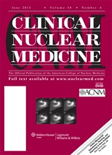
CLINICAL NUCLEAR MEDICINE
Navigating the Evolving Landscape of Nuclear MedicineCLINICAL NUCLEAR MEDICINE is a premier journal dedicated to the field of nuclear medicine, published by Lippincott Williams & Wilkins. With a history of excellence since its inception in 1978, the journal serves as a vital resource for researchers, healthcare professionals, and students seeking to deepen their understanding of this rapidly evolving discipline. The journal holds a commendable Q2 ranking in both Medicine (miscellaneous) and Radiology, Nuclear Medicine and Imaging, reflecting its significant impact on advancing clinical practices and research. While currently not offered as an open-access publication, CLINICAL NUCLEAR MEDICINE ensures rigorous peer review and high-quality publications, contributing to the broad dissemination of cutting-edge studies and reviews. With its comprehensive scope encompassing both diagnostic and therapeutic nuclear medicine applications, researchers around the globe turn to this journal to stay informed and inspire innovations in patient care for the years leading up to 2024 and beyond.

Indian Journal of Hematology and Blood Transfusion
Empowering Healthcare Through Cutting-edge Hematology ResearchIndian Journal of Hematology and Blood Transfusion, published by SPRINGER INDIA, serves as a leading platform for disseminating original research, reviews, and case studies in the field of hematology. With an ISSN of 0971-4502 and E-ISSN 0974-0449, this journal has been instrumental in advancing knowledge from 2000 to 2024, providing insights into critical issues surrounding blood disorders and transfusion practices. Currently ranked in the Q3 category for Hematology for 2023, it reflects a commitment to high-quality scientific content amidst a competitive landscape where it ranks 97/137 in Scopus for Medicine - Hematology, placing it in the 29th percentile of its peers. The journal primarily addresses a diverse readership, including researchers, healthcare professionals, and students, aiming to foster innovation and collaboration within the field. Although it operates under a subscription model, access options for individual articles and institutional subscriptions ensure that valuable research is disseminated widely to enhance medical practice and education in hematology.
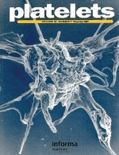
PLATELETS
Pioneering insights into the world of platelets.PLATELETS is a distinguished journal published by Taylor & Francis Inc that has been at the forefront of research in the fields of hematology and medicine since its inception in 1990. With an ISSN of 0953-7104 and an E-ISSN of 1369-1635, this journal boasts a solid reputation, as reflected by its Q2 ranking in both Hematology and Miscellaneous Medicine categories in 2023. PLATELETS serves as an essential platform for disseminating pioneering research, reviews, and case studies related to platelet biology, thrombosis, hemostasis, and their clinical implications. Although not an open-access publication, it is indexed in reputable databases, ensuring visibility and citation of quality contributions. Researchers, clinicians, and students alike will find valuable insights that may inform their work and enhance their understanding of the crucial role of platelets in health and disease. This journal's commitment to advancing knowledge and fostering innovation makes it a pivotal resource in the academic community.